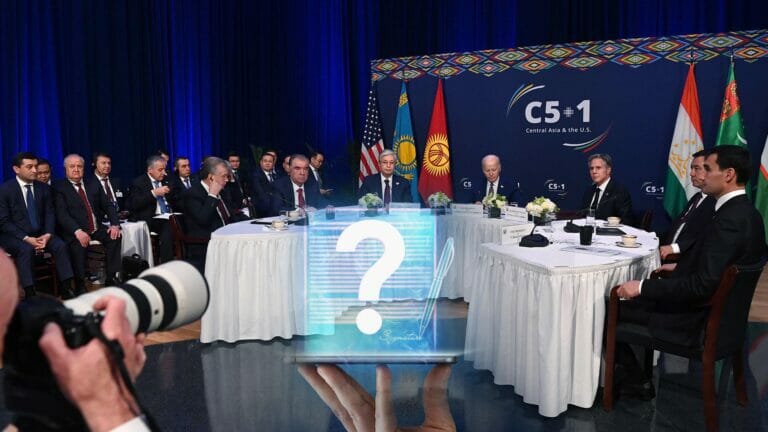
Even though the regulator softened its monetary policy cutting the base rate to 14.5% in late May, while inflation slowed to 8.4% in June, returns on Kazakhstani government securities (GS) rose by 1.5% to 2% in the second quarter of 2024 compared to the first quarter of the year. According to the National Bank’s Macro & Market Overview for international investors, this increase was largely driven by the need to finance the budget deficit and strong market participation in GS auctions.
Demand for these securities exceeded supply by 180%, with investors showing the most interest in medium-term bonds, although short-term bonds also saw significant demand. The Ministry of Finance issued $4.17 billion worth of fixed-coupon GS over the period between April and June. Nearly half of these securities have a maturity of 5 to 10 years.
At the same time, investor participation in GS auctions fell by 8.4% quarter-on-quarter (to 57.2%) and by 3.6% year-on-year. Despite this, the volume of securities held by non-residents surged by 41.6% to $1.4 billion. To boost liquidity in the secondary market, Kazakhstan consolidated its existing GS by redeeming old issues and issuing new ones. Currently, the trade volume for 12 security issues exceeds $1 billion.
Further initiatives include ongoing efforts to establish Euroclear settlement and introduce primary dealers to streamline auctions, thereby improving efficiency in the government debt market.
As of July 1, 2024, the budget deficit amounted to $12.09 billion and $8.96 billion, according to revised and adjusted data, respectively. The total government debt reached $59.84 billion, representing 21.3% of the GDP.
Moreover, the National Bank reported that the tenge’s high volatility—strengthening in May and weakening in June—was driven by currency sales from the National Fund and decreased currency demand from local market participants. In the first half of the year, the National Fund sold $4.7 billion worth of currency (to secure transfers), which accounted for 77% of the planned volume for the year (approximately $6.1 billion). To maintain the foreign exchange share of pension assets at the rate of 30%, the Unified Accumulative Pension Fund (UAPF) purchased $2.4 billion, although no foreign exchange interventions were made.
Given the budget deficit, the market anticipates a potential increase in transfers from the National Fund in the second half of the year. As of June 2024, the government withdrew $5.6 billion or 75% out of $7.5 billion planned to be withdrawn from the fund this year.
According to the National Bank, it was expected to spend about $1 billion from the National Fund to purchase shares of Kazatomprom, the national uranium company (controlled by Samruk-Kazyna). In order to facilitate the deal, the regulator converted foreign exchange into tenge by transferring assets from the National Fund into the National Bank’s gold and foreign exchange reserves. On the other hand, the National Bank has been gradually selling the purchased currency from its reserves at an average rate of $11.5 million per day since the end of July to mitigate the deal’s impact on the market. By the end of last month, $115 million had been sold, with $230-250 million scheduled to be sold in August.
In mid-June, the government authorized National Fund resources to be invested in Kazatomprom’s shares to finance the budget. The corresponding decree was signed by Prime Minister Olzhas Bektenov. This document has amended the list of authorized financial instruments eligible for investing National Fund assets. Later, Timur Suleimenov, head of the National Bank, described the investment in Kazatomprom’s shares as «a good deal.» However, he did not classify this action as either an allocation or expenditure of funds.
In early May, President Kassym-Jomart Tokayev signed a decree on measures to liberalize the economy. According to the document, Kazakhstan will introduce a ban on attracting financing from the National Fund on non-market (preferential) terms for quasi-public sector entities by September 1. Projects of national importance are going to be the only exception if they are approved by the president.
At the same time, the Ministry of Finance has clarified that it will still be able to purchase KazMunayGas (KMG) shares on non-market terms (with a discount) to finance the budget. The agency said that this practice does not contradict the Concept for Public Finance Management of Kazakhstan until 2030 or the list of authorized financial instruments for purchase by the National Fund. The Concept for Public Finance Management was amended twice in December 2022 and September 2023. The first amendment allowed lending directly (not through the budget, as it was previously) to the Samruk-Kazyna Fund via the acquisition of its bonds. The second amendment permits the acquisition of KMG shares below their market value to finance the state budget.













